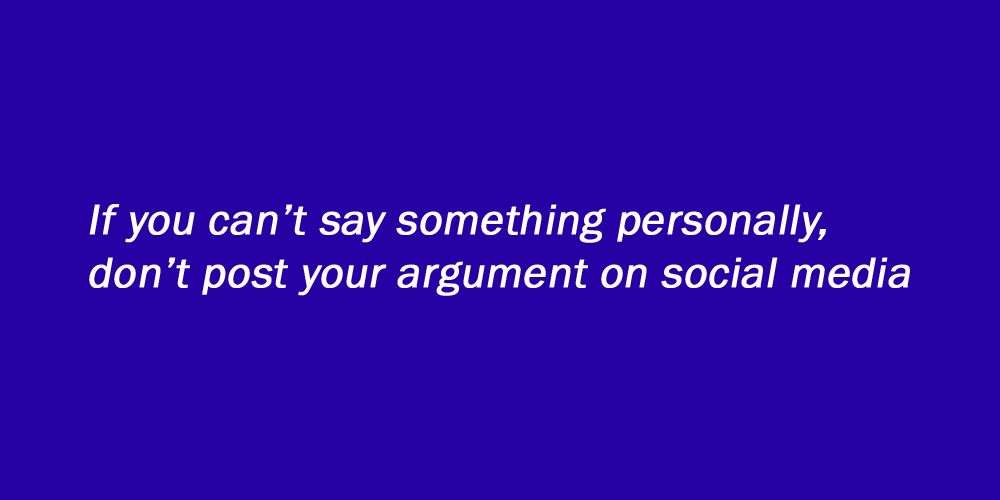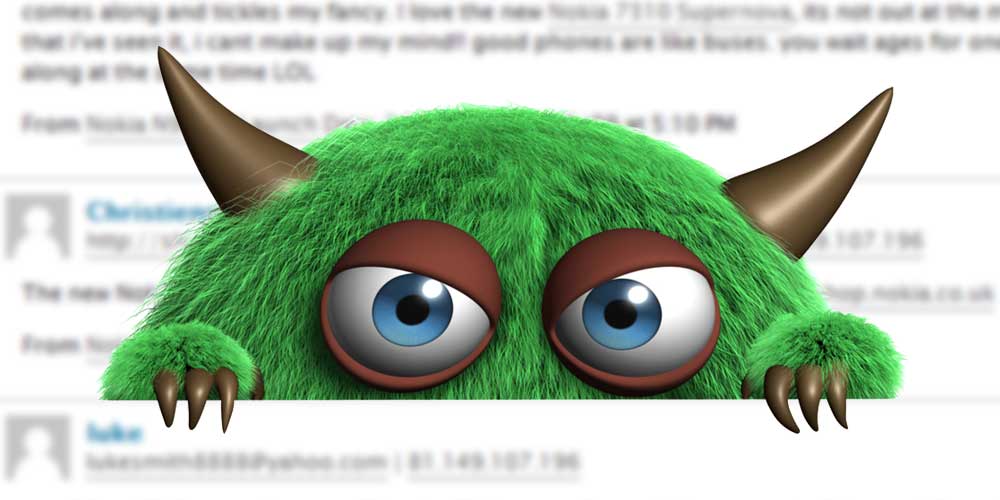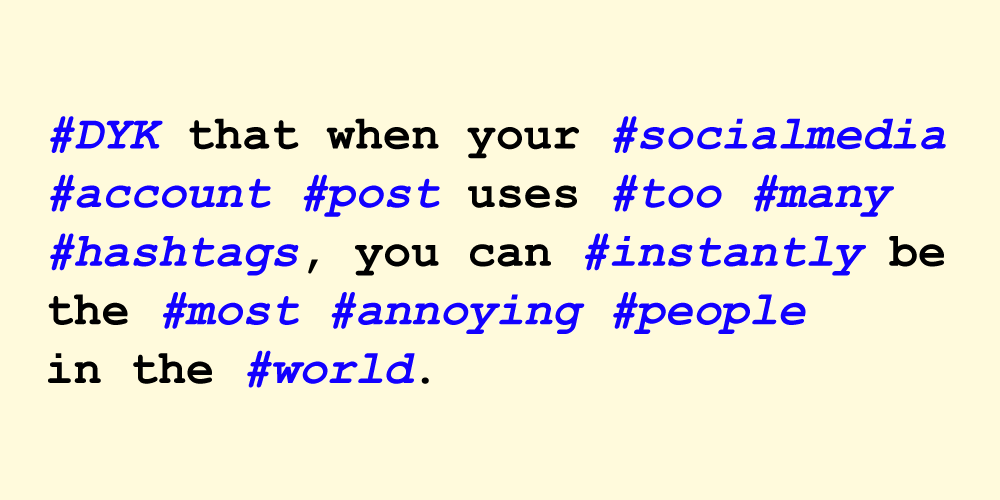Whether you like it or not, social media networks have successfully planted their roots deep into the everyday lives of the society.
For good reasons, social media allows us to reach people half way across the globe, all in real time. We can share just about anything, for free. But here's the thing: social media can also be a risky place when bad contents are shared.
With algorithms that get frequent updates, to the trends that always shift, it’s should be pretty difficult to control where your posts end up. As users of social media, you don’t have that much control over what your friends do with your posts.
And with just a few likes and comments received, a bad post can be seen by hundreds of people you don’t know.
Both personal or business accounts that share bad contents will risk overshadowing all of their hard work they've put into building their online presence.
Because it's obvious that as users of social media, you want to always please your audience (followers), instead of talking about what you should do, let’s look at the things you should not do if you want to have a successful social media presence.
Avoid these post types in your approach.
Related: The Most Common Social Media Mistakes That Could Hurt Your Business

1. Create Promotional Content That Doesn't Bring Value
Advise and information are two of the most common things people seek when using the internet. Whatever your social media goals are, you should always bring value to your audience.
Some social media users make mistakes when assuming that what's valuable to them, is also important to their audience. By sharing these kind of contents, these people can be considered spamming others with posts the audience never really care.
After all, people on the internet have different thoughts, and one approach may not appeal the masses in general.
So instead of using your social media platforms to broadcast what you think is the best, it would be wiser to join in conversation that are already happening. There, you can listen to what your audience is discussing, to understand what to post on your next pitch.
2. Extreme Political Or Religious Content
Politics and religion are two subjects that people feel very strong about.
Cyber extremism has become very common in the modern days of the internet, and people can find those contents provoking in many occasions. This is because both are a person’s most intimate affairs, and nothing gives people the right to question or judge someone else’s beliefs.
Unless you’re a political or religious organization, you need to avoid publishing anything that could be controversial. When you share posts that include political or religious content that doesn't connect with the your audience, you'll be bound as either irrelevant or offensive.
Here, you will risk losing followers and trust.
3. Irrelevant Viral Posts
If you want to be part of the trend, you better be up-to-date with the community.
Piggybacking you post with memes, for example, can be a good way to reach more people on social media networks. But if your post is irrelevant, or if you're posting it late, chances are, your audience won't buy it.
It's like you're reposting someone else's thoughts, without giving extra values.
Instead, plan your content in advance to make sure that what you post is relevant to your audience, and if using others' viral posts to boost visibility, better do it quick when it's hot.
4.Expressing Negative Feelings, Or Hatred
From trolls to haters, to those expressing negative feelings, they are all plaguing the internet with their bad thoughts of others.
While social media can be a good place to express your feelings, you should be doing that when the time and concern is right.
Negative feelings and hatred will only hurt your credibility, and the social media itself. As a matter of fact, it won't benefit anyone.

5. Posts With Errors In Grammar And Spelling
Unless you want to post those cat memes, don't share things with grammar or spelling errors.
Your social media profiles, like your website, are your virtual windows to the internet. Making a mistake in your content, even if that is just a simple typo, can make people think that you don't really care about your brand.
This is why you need to carefully draft your contents, making sure that you proofread your copy before you publish. Or even better, share it with a colleague to check whether everything is right before posting.
6. Inconsistent Tone/Character
Your social media profiles are an extension of your brand, and although you’re restricted by the format of the social platform you’re posting to, you still have to be creative over your brand voice and tone.
This is where consistency matters.
When you're building a brand on social media networks, you're expecting your audience to consider you as something (or someone) with the knowledge and expertise in the field. This in turn will create a brand persona associated with your account.
If you change this persona once too often, you can confuse people.
This is why when you’re planning out your social content, you should always revisit your brand personas, and craft a post based on them. Make sure that the content you publish stays as close to these styles and themes as possible.
7. Using The Same Message For Different Social Media Networks
Although you want to maintain a consistent persona and brand voice, it’s a mistake to post exactly the same content across all social media platforms.
Different platforms excel in different things.
Twitter for example, is good to speak out comments fast, like a machine gun to all directions. Pinterest is more like a window shop full of advises. Instagram is for image- and video-oriented posts where things are visual and informal. LinkedIn is more of a copy-heavy and formal social media where people don't really talk about their personal and casual selves.
Knowing this, you should think about each of your social media accounts, and tailor your content to suit each one.
Even if you have roughly the same thing to say, make sure that your message fits with the style and tone of each platform.
8. Using Too Many Hashtags

Hashtags are very useful. As a matter of fact, the functionality that Twitter introduced, has been adopted by almost every social media network out there on the internet.
For many reasons, hashtags increase content visibility and shareabilty. This allows the poster to spread their post faster across the platform to reach those that aren't otherwise reachable, letting them grow their audience and create greater discussion.
But too many is just too many.
One social media post can hold just that many hashtags. If you stuff more hashtags than needed, you will simply make your post irrelevant, unreadable and diluted.
It's wise to do some hashtag research before posting, to ensure that you use only the ones that are relevant to your audience, and your content.
9. Sharing Personal Information That Are Very Personal
Whether you're a brand of using social media for personal usage, it's wise to never post any sensitive information that can lead strangers back to you.
For example, posting contents that have your real name tied with your home address, your personal telephone number, your date of birth, your mother's maiden name, and any other information deemed sensitive, including username-password combination and commuting activities.
Posting these on the internet can cause huge catastrophe.
Hackers are always on the move to seek these kinds of information. If they can ever get all the necessary information, they can easily steal your identity for malicious purposes.
Even if you set your posts or profile to be private, it's never a good idea to ever post these kind of information to the internet in the first place.
Personal information can also include your health issues, and those embarrassing and private photos of yours.
Conclusion
When you’re a social media user that regularly use and post contents, it's very easy to be carried away and get into those bad habits.
Brands can often make the mistake by thinking that posting any content is better than posting none at all.
On the contrary, posting negative, irrelevant or careless content can damage your brand. This in turn will make you lose trust, followers and credibility.
Remember, if you don't like seeing something on social media, chances are, your followers aren't liking it either. So, stick to the rules of playing safe and healthy in order to make a stronger social media presence with each passing day.
